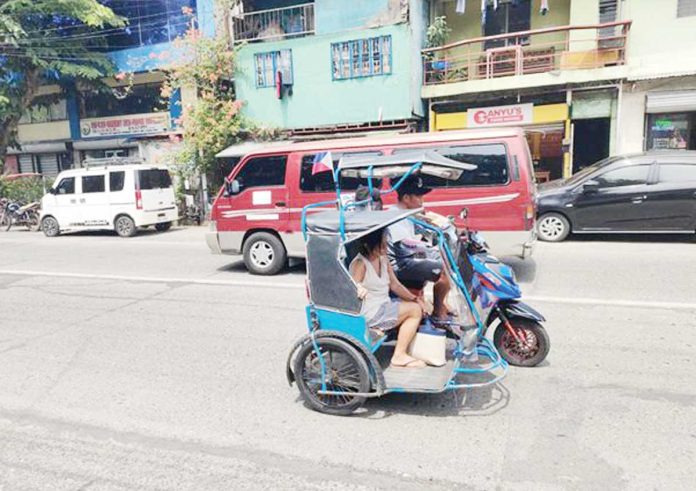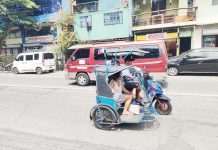
ILOILO City – A sweeping campaign to rid this city’s streets of colorum or unregistered tricycles and e-trikes has kicked off, aimed at enforcing transport regulations and rolling out a modernized Tricycle and E-Trike Route Plan (TRP).
Also being targeted are those operating outside designated routes.
The campaign, spearheaded by the Iloilo City Traffic and Transport Management Office (ICTTMO) and the Public Safety and Transportation Management Office (PSTMO), includes checkpoints, impoundment operations, and night patrols.
“This is no longer a ‘wait-and-see’ situation. The grace period is over. Drivers who still operate without a franchise or outside of their assigned routes will be apprehended and their vehicles impounded,” warned Uldarico Garbanzos, ICTTMO chief.
According to Garbanzos, the current figure of 700 colorum units is likely an undercount, with more plying the roads after dark — especially around call centers and night terminals.
“Big challenge ini sa amon ang 24-hour nga operation. We only have 12 dedicated personnel for TRP enforcement, but our enforcement and clearing team is on 24/7 standby for urgent responses and night patrols,” he said.
He identified Molo, Mandurriao, and Arevalo districts as having the highest concentration of illegal tricycle operations.
The intensified campaign comes alongside the city’s move to revise Regulation Ordinance No. 131 or the outdated “Trisikad Ordinance” to formally regulate electric tricycles, which have proliferated in barangays and subdivisions.
“Trisikad has leveled up to e-bikes. Indi na pwede nga magbiyahe sila bisan diin. They must follow inner routes. If we catch them on national highways, or worse, picking up passengers in restricted areas, that’s a clear colorum violation,” Garbanzos said.
To protect legitimate operators who are still in the process of compliance, Garbanzos clarified that traffic enforcers will honor certifications issued by the city’s Tricycle Franchising Board.
“Kon nagaproseso pa lang sila, ipakita lang ang certification sa aton traffic aide. But if they can’t show proof, they will be flagged and fined,” he warned.
Membership in a TODA (Tricycle Operators and Drivers Association) also does not exempt drivers from compliance.
“Let’s be clear, being part of a TODA does not make you immune. If you don’t have an official franchise, you’re still considered colorum,” Garbanzos stressed.
Currently, the city has 33 approved tricycle routes and 35 TODAs. Route adjustments are ongoing, especially with the expected traffic buildup from school openings.
“We already observed moderate traffic congestion near high-volume schools like Iloilo Central Elementary and Baluarte, that’s why we need organized public transport routes,” he said.
To address demand in high-ridership night zones such as Mohon Terminal, Tabuc Suba, and Lopez Jaena, Garbanzos said transport cooperatives have pledged extended service hours.
“May mga transport coops na nag-commit to operate until 10 or even 12 midnight. We’re encouraging more to do the same because students and graveyard shift workers need dependable public transport,” he added.
The city has also prepared logistical support for mass apprehensions. Two impounding areas, including one in Barangay Calajunan, Mandurriao are ready to receive confiscated units, while more impounding receipts and towing resources have been secured.
To bolster ground enforcement, the city deployed a 12-member task force for TRP operations, each equipped with a motorcycle for rapid deployment.
“This is not just a traffic concern, it’s about safety, order, and long-term sustainability. If you want to operate legally, now is the time. But if you continue to violate, we are ready,” Garbanzos said./PN






